SCOUT Friday Picks is our dedicated column on music, with a focus on familiar faces and new, young voices. For recommendations on who you want us to feature next, tag us on Twitter and Instagram at @scoutmagph
In the second episode of sci-fi comedy anime “The Disastrous Life of Saiki K.,” the cynical pink-haired titular character becomes the unexpected honcho of their P.E. class, his self-proclaimed “kryptonite.” To everyone’s surprise, the high schooler with psychic abilities aced the heated dodgeball battle.
This instant moment of stardom pops into my head as Angelika Lois Ponce fondly narrates a Grade 11 memory when she was handpicked to represent her section. But unlike Saiki Kasuo, it wasn’t her classmates who doubted her skills.
“May songwriting competition sa school,” the 22-year-old musician reveals. “‘Yung mga classmate ko, pinipilit ako, ‘Sali ka! Sali ka!’ Like, what? Hindi naman ako nagsusulat, kanta lang. Ako naman, uto-uto, sumali.” Together with a rapper classmate, they joined and won. “Parang Buwan ng Wika ‘yung theme. ‘Ako’y Pilipino…’ ganun pa ‘yung lyrics. Very patriotic,” she quips, recalling the lyrics of technically the first song she’s ever written. “‘Yun ‘yung doorway ko na like, ‘oh, I realized I could actually do this.’”
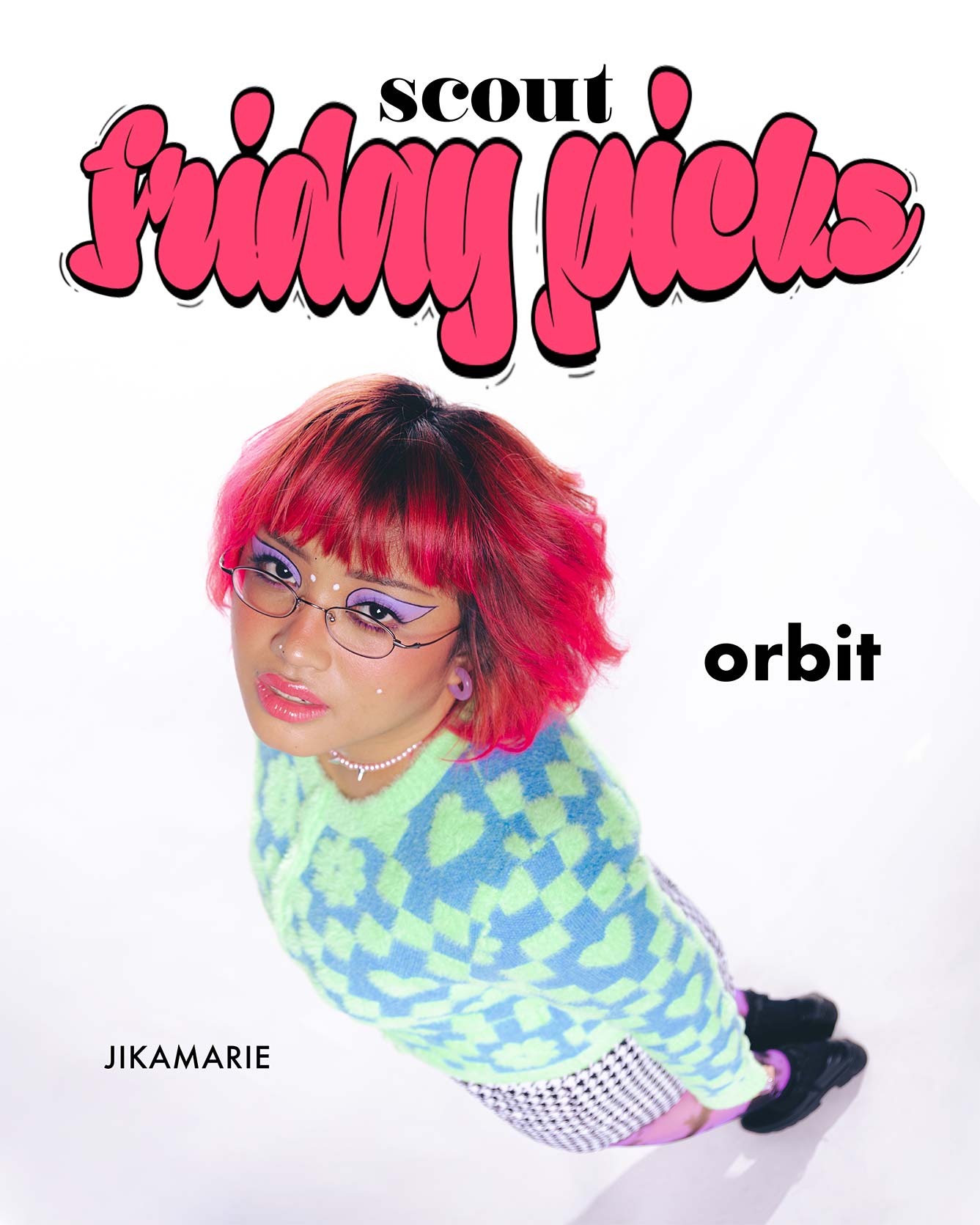
On Instagram, you’d spot Angelika (popularly known as Jikamarie online and elsewhere) cosplaying as Saiki for this year’s Halloween. Aside from her favorite colors pink and green in their Venn diagram, Jikamarie resonates with the fictional character because of his introversion. “ I relate to him being an observer ‘cause like, it lets me know the [behavior of the] people around me.”
Before that campus performance, she had a—as she describes it—toxic fear of failing and being a beginner. Ultimately, she wasn’t really a performer. “I was very, very, very shy,” Jikamarie emphasizes, backing it up with the fact that even asking for fast food gravy would be an extreme sport. This is why everyone who knows her—from relatives to friends—didn’t expect her to be a singer, let alone a public figure.
View this post on Instagram
Add to that the pressure of having pastor parents and the need to be “good” in a conservative society’s book. “I’m not just a kid who grew up in a religious household, I’m a pastors’ kid,” she says. “Even though you don’t intend it to be, nagiging model family ka, eh. Somehow people expect you to be less likely to make mistakes.”
But that doesn’t mean she didn’t grow up in a space that inspired music. In fact, in a “very Wattpad” meet-cute fashion, her parents, before becoming pastors, crossed paths as college bandmates. “Kumbaga, this passion did not come out of nowhere. It’s not surprising ‘cause it still came from them.”
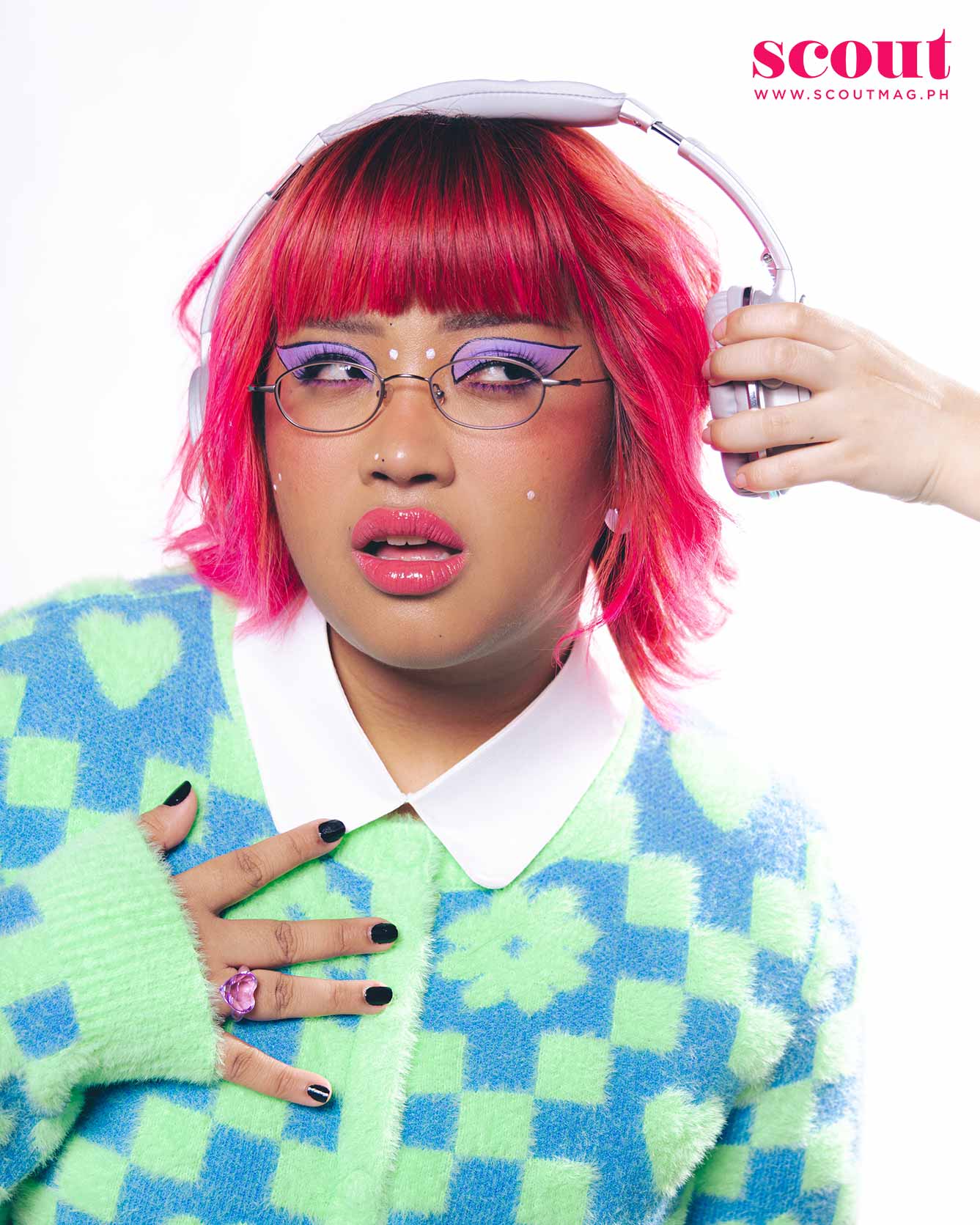
As far as her flashback ability could take her, Jikamarie’s earliest memory of music consisted of singing along to gospel songs on the radio—or whatever her parents would play. Eventually, her music taste started to develop. Like all of us, a Directioner phase propped her pre-teen history, with One Direction’s “Up All Night” being her first physical album. Soon, Conan Gray, The 1975, Ruel—and later on BTS during the lockdown—would dominate her playlists in college, a time when she’d listen to music almost always. That includes when making plates, as an architecture major.
“I wanna be in music, I wanna write songs, I wanna sing, and I wanna perform them. I was thinking of that while I was drawing buildings, making floor plans. In my head, I was performing.”
Music gradually and permanently occupied her student life until one day during the quarantine era, as she finished another plate and wrestled with stress and exhaustion, she realized something life-changing: “I wanna be in music, I wanna write songs, I wanna sing, and I wanna perform them. I was thinking of that while I was drawing buildings, making floor plans. In my head, I was performing,” she tells me. “I would cry about it.”
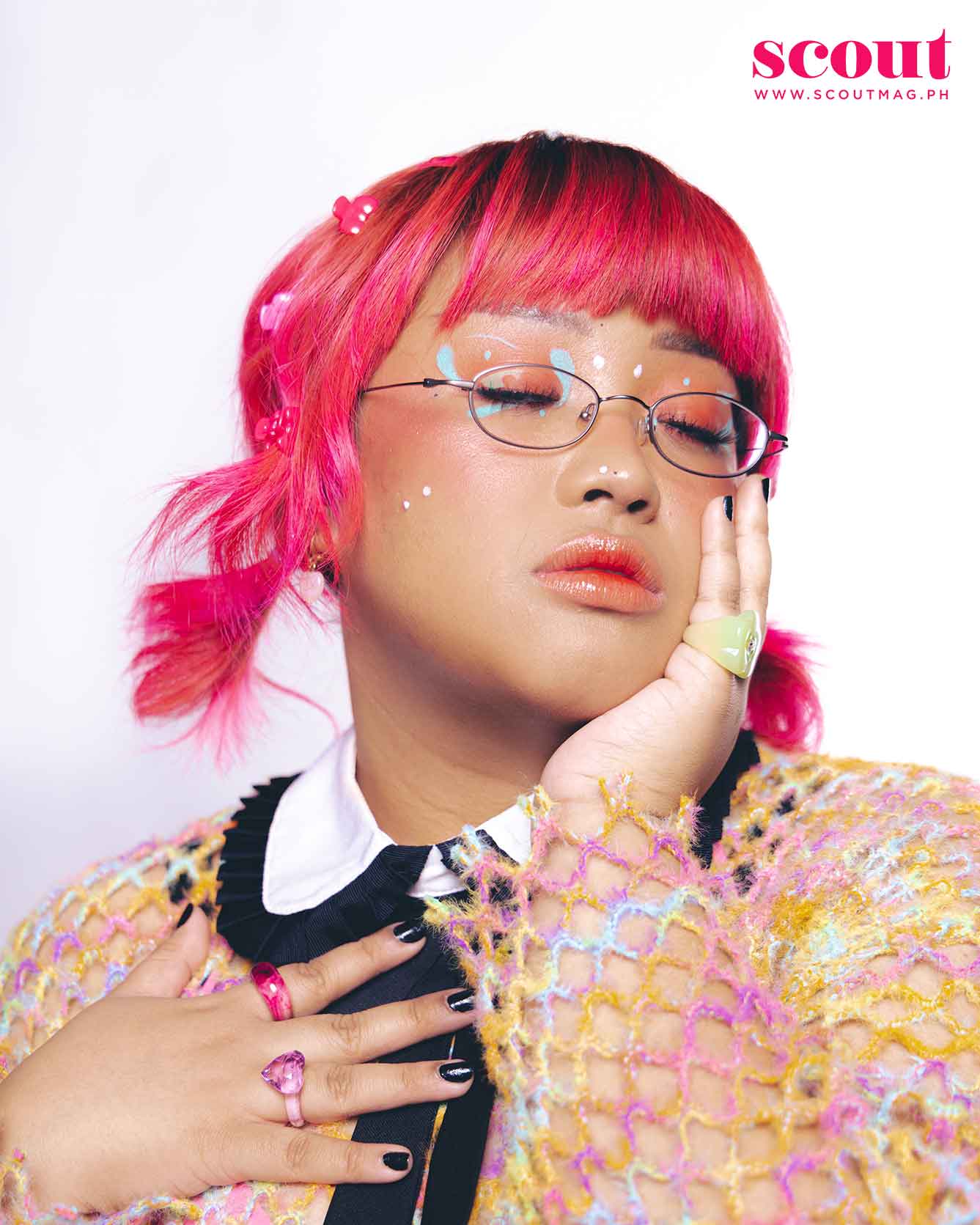
“Ah basta, gusto ko lang naman magpalutang-lutang,” begins the chorus of “Lutang,” a song she penned at the height of her emotions. Little did she know, it was a TikTok hit in the making. Her debut track would garner 10 million streams by Dec. 2021 and land on Spotify’s Viral Philippines’ top spot. And of course, the seal of approval in this age of the chronically online: 10-second skits about mundane life events using the track as their background music.
With its simple lyrics, Jikamarie thinks “Lutang” is “not even poetic.” But it’s easy to understand why it became a smash hit: It starts with crystal sounds of nature; the rhythm is eargasmic. The lyrics allude to a particular feeling, but can also fit with any situation of frustration. A certain vulnerability lies in her vocals, yet not the kind that’ll make you feel like an intruder or an outsider. The dreamy production? A cherry on top, especially when I watched her live.
Although worth celebrating, this sudden massive recognition threw Jikamarie into a tricky situation. “I definitely learned a lot with techniques, how I write, and how I express myself better. But there are some things that I discovered [which] are more on the technical and legal side that I was like, ‘this is kind of sad,’” she says. “[When you’re a listener,] you never know the things [artists] go through behind cameras and when nobody is seeing things. I think that’s one of my biggest stressors this year. Sorry to be a downer.”
Jikamarie says streams- and audience-focused goals can feel a bit tiring, but it’s the harsh career truth that she has to accept. “I’ve only been an artist for a year. But my mindset has changed so many times, ‘cause of different criticisms I’ve heard around me. Some people once told me, ‘Dapat ’pag sumulat ka, ’yung pang-hit song,’” she confesses. “Pressure ’yun. Even though they don’t think they’re putting pressure on me. Carry ko ’yun every night.”
View this post on Instagram
Good thing there’s her family who “streams her music 24/7”. Her parents are First-To-Read-The-Comments-On-Her-Social-Media-Posts level of supportive. “I realized how blessed I am with my family. Through everything that I went through, mga mental, emotional challenges, they’ve been there for me.”
Apart from that, her brother Kenneth Ponce is her producer. “Lots and lots of screaming and fighting. But like, just banter,” she laughs, describing their three-year-gap dynamic. “I’ve worked with many producers, but I’m the most comfortable around my own brother.”
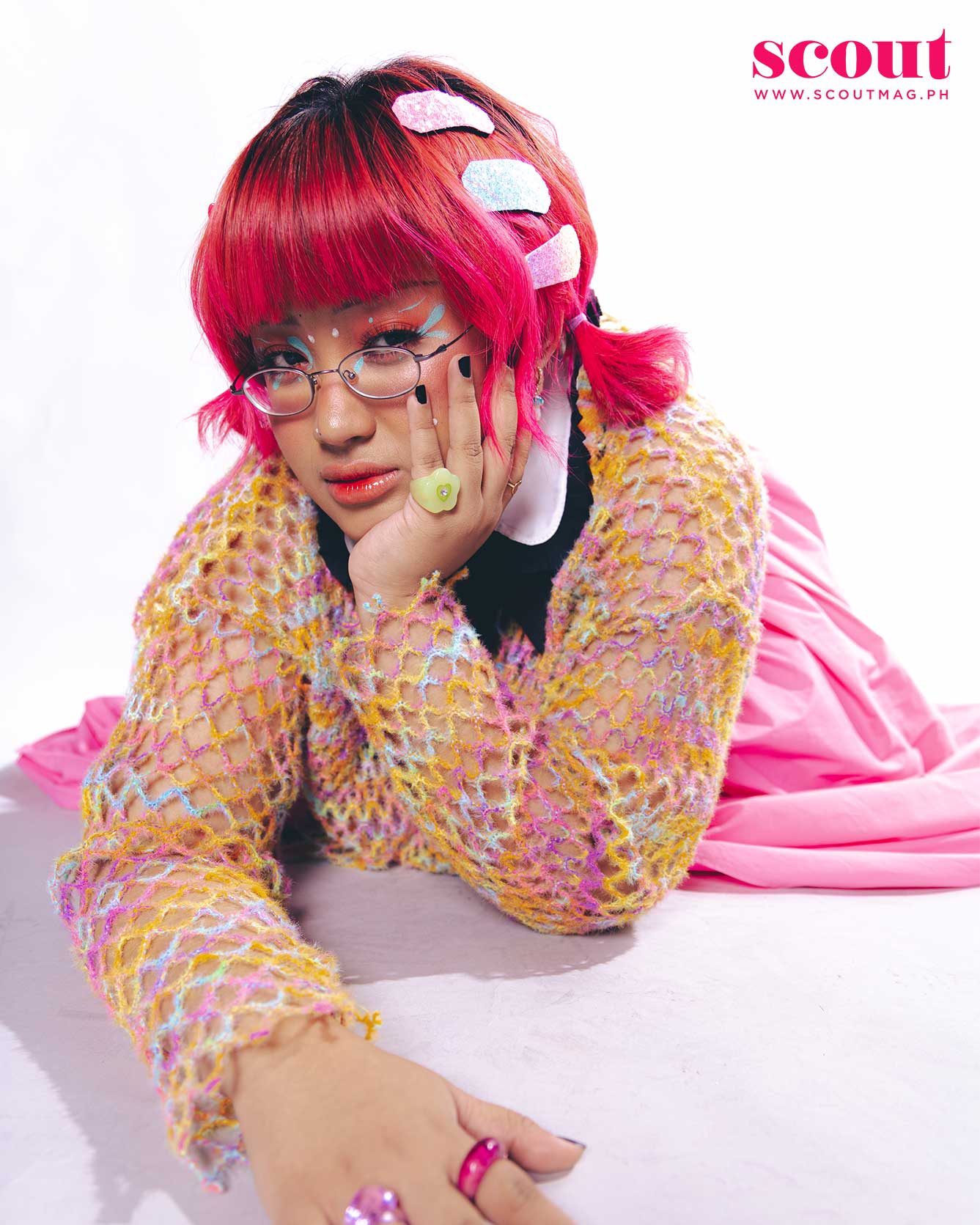
Orbiting these personal, intimate territories strengthen Jikamarie’s identity in music—and this includes the place of her younger self. Here’s a secret: “Jikamarie” wasn’t originally fated to be her official artist name. On a random day in 2020, she was just thinking of a TikTok username, and took a page from her childhood nickname. No one in her IRL circles would find her here, she thought, since it’s a moniker she hated, replaced the initial with a “J,” and added a classic Filipino second name “Marie.”
“So, do you feel like this musical persona is your way of embracing your inner child?” I ask. “I think, yeah,” she lets out a light scream and flashes a big smile, shocked at the realization. “Thank you for reminding me! As a child, I’ve always dreamed of becoming a performer. Like a singer.”
Blame adulthood for the guilt. She used to think, “Why [was I even] wanting that? That’s so unrealistic. Be for real! I felt pathetic or ridiculous for wanting something that millions of people in the world wanted.”
Apart from her artist name being a subconscious nod to her younger self, she also channels her choir singer self when she’s Jikamarie, the pop-R&B singer on stage. “[Both crowds of the Church and the secular world,] their energy depends on the person on stage. Like if you are shy and you’re bored, they would subconsciously adapt [to] your boredom. ‘Di ba?” she says. “‘Pag energetic ako, nahahawa ‘yung tao sa crowd. Kahit ‘di ka nila kilala.”
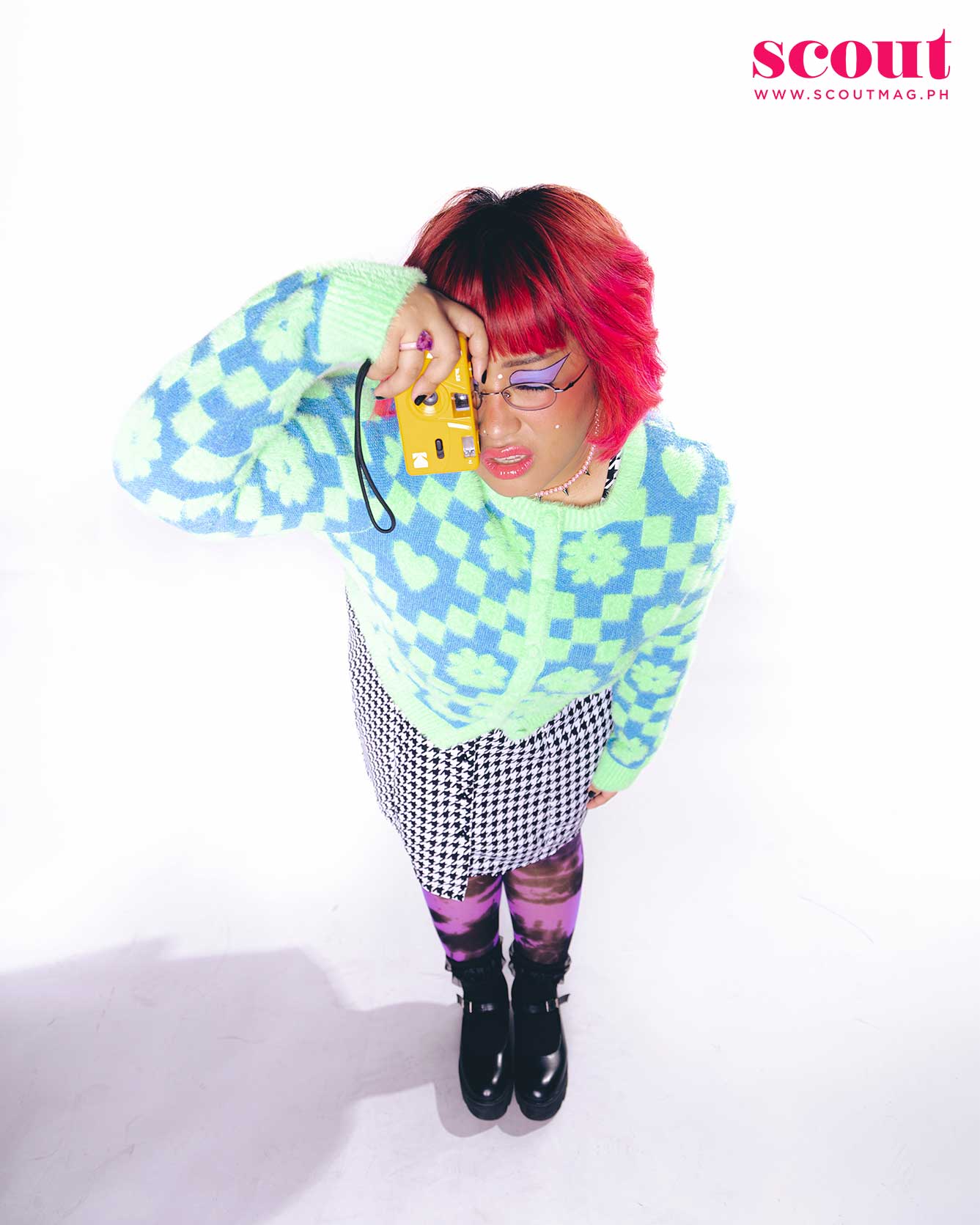
Most of all, she’s trying not to think too far ahead. “One thing I’ve learned so far in my very short journey of performing live? I don’t think too much. Dati kasi lagi kong ino-overthink, ‘Hala paano kung ganito…’ [But] no one cares that much!” she tries to convince me. “People don’t care as much as you think. Hindi nila pansin na hindi pantay ‘yung medyas mo. Like, just sing, girl. Just do what you need to do. Enjoy mo ‘yung sarili mo. If wala ka namang natatapakang tao, ‘di ba?”
“People don’t care as much as you think. Hindi nila pansin na hindi pantay ‘yung medyas mo. Like, just sing, girl. Just do what you need to do. Enjoy mo ‘yung sarili mo. If wala ka namang natatapakang tao, ‘di ba?”
This applies to her songwriting approach now, too. She dropped four singles this 2022, with themes of love, infatuation, and desire wrapped in outer space-like imagery. For her next releases, she wants to “stay in her lane”—writing about depression, anxiety, social anxiety, insecurities, beauty standards.
“I used to force myself to write because I thought I was being smart and I was being a genius, no. It was not healthy creatively.” Like the Gen Z that she is, she opens her Notion whenever ideas arrive, and revisits them once ready. Just letting the ideas go through her art of free-flowing. After all, “Lutang” was one of the songs she did not overthink. “I just really wanted to express myself.”
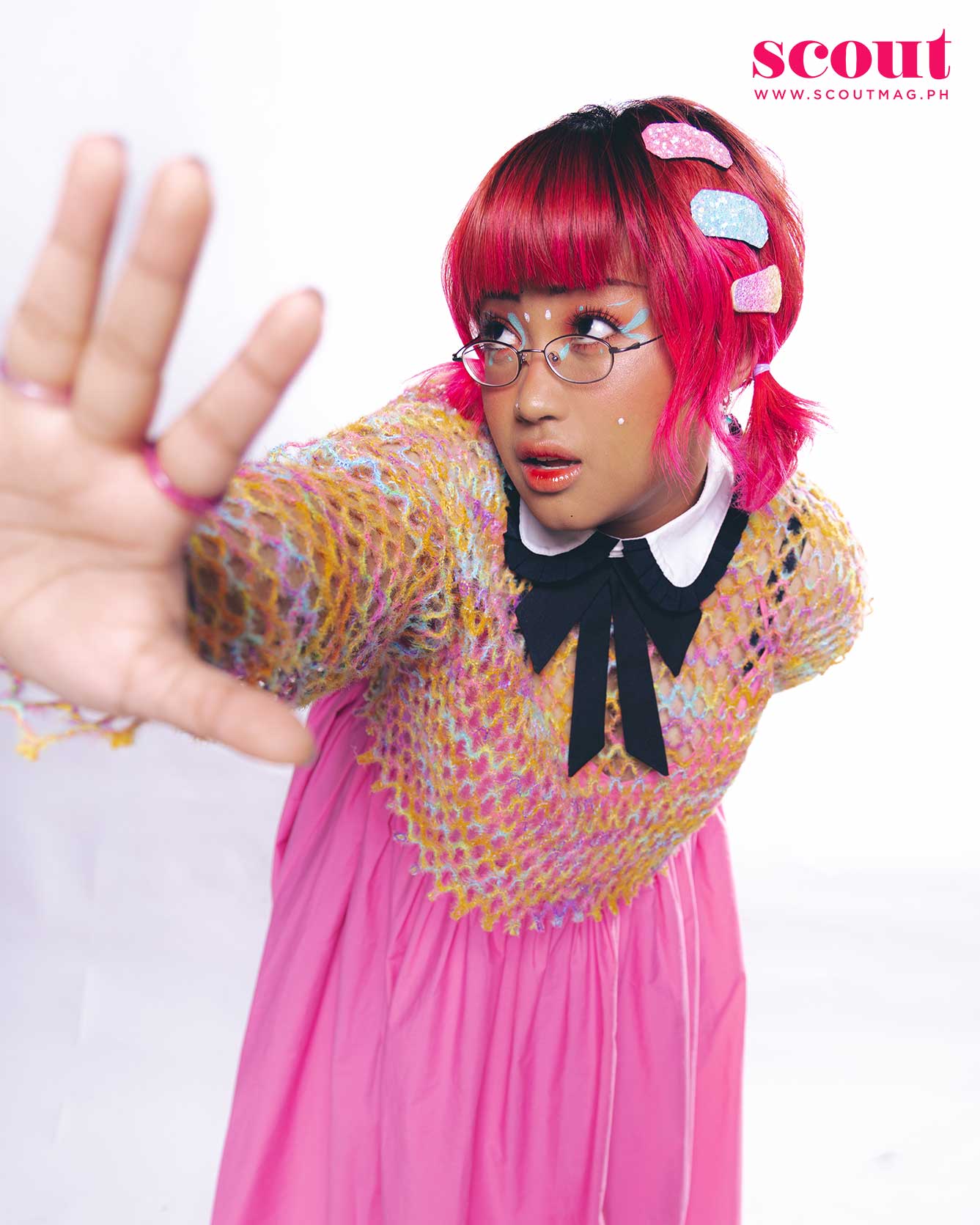
As she continues her discography, Jikamarie still wants to wear her heart on her sleeve, even though vulnerability can be a double-edged sword. “Gaya nung sentiment ko with ‘Lutang,’ as an artist, I think it’s necessary to share it ‘cause it lets other people know that they’re not the only one going through that. We’re just not talking about it.”
In return, the same folks who put her music on loop have helped her move forward. “Every single time that I bawled my eyes out and wanted to truly give up on music, there would be like, ‘ting!’ I’d open my Instagram, and someone would say, ‘Hi Ate Jika, thank you so much. Please don’t stop making music. I had no one but I had your music,’” she recounts. “There’s always an audience for everyone. There’s always a crowd of people that will applaud you or will find you amazing or impressive or [will] appreciate you. That’s one thing I appreciate my followers for.”
“There’s always an audience for everyone. There’s always a crowd of people that will applaud you or will find you amazing or impressive or [will] appreciate you. That’s one thing I appreciate my followers for.”
“I’m not a mind-reader,” she jokes, telling me the obvious difference between Jikamarie and Saiki K. I don’t think she needs that, anyway. In the early stage of her career, she’s been making and understanding her own assignment, listeners orbiting around her music—in her current makeshift outer space—one release at a time. That’s a cooler superpower, don’t you think?
Story by Jelou Galang
Photography by Borgy Angeles
Produced by Justine Rey
Creative direction by Yel Sayo
Makeup by Dorothy Mamalio
Hair by Rudolf Davalos
Styling by Jessica Cabuay, assisted by Phoenixia Cabuay
Sittings by Jelou Galang
Special thanks to Warner Music Philippines
Read more:
Exposing the different personas of rising musician Paolo Sandejas
Hip-hop artist JRLDM has long owned his craft before getting anyone’s approval
How Massiah went from engineering student to ASAP Rocky’s opening act
















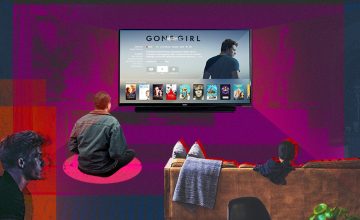






Comments